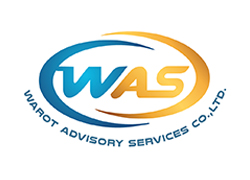|
MERGERS & |
As borders reopen and business returns to normal, the activity that supports company mergers and acquisitions (M&A) is increasing. Companies big and small are looking to M&A to boost their financial results and achieve their goals, especially when they cannot rely on organic growth to achieve the same results.
In such circumstances, M&A can be an attractive option. Companies might anticipate benefitting from synergies, economies of scale and scope, increased market power, cost reductions, customer base expansion, and integrated talent and management following an acquisition or merger with a suitable target. Since the global pandemic, there have been cases of smaller players being acquired by bigger players in order to continue operating their businesses.
It is expected that M&A activities will continue to grow in 2023, particularly through inbound investment in Thai companies as big corporations take advantage of the economic situation in Thailand after the pandemic and the depreciation of the Thai baht.
Recent developments
The Thai government issued merger control regulations at the end of 2018. Companies, lawyers and business consultants must consider these when conducting M&A activities. A number of deals in Thailand were subject to merger control regulations in 2022. One notable recent deal was the merger between Thai mobile operators True Corporation and Total Access Communication.
M&A methods

Founding Partner at Warot Advisory Services in Bangkok
Tel: +66 8 1802 5698
Email: warot@warotadvisoryservices.com
The two most common acquisition methods in Thailand are an acquisition of a target company’s shares or the acquisition of its business and assets. Share acquisition is the most common method for a company to acquire a target. It is easier to implement but due diligence must be conducted to identify risks in the target company. Indemnities and warranties should be incorporated into any share purchase agreement.
It is worth noting that the transfer of shares in Thailand is subject to stamp duty at the rate of 0.1% of the greater of transfer value or par value.
Business and asset acquisition is done where an acquirer does not want to run the risk of acquiring the target’s hidden legal and tax liabilities. This method is employed because legal and tax liabilities generally remain with the target company and are not transferred with the businesses or assets.
Nonetheless, Thailand’s Foreign Business Act may restrict foreign companies from directly holding businesses or assets. In such cases, a Thai company must be established to hold businesses or assets in Thailand. Please note:
- Other legal requirements have to be met as well; and
- Transfer of assets is normally subject to value-added tax, and certain transactional documents are subject to stamp duty and other fees in Thailand.
Joint ventures may be set up between companies (either between Thai and foreign companies, between foreign companies, or between Thai companies) to operate a business in Thailand that may require knowledge and know-how from both parties. In some cases, the joint venture companies are set up to comply with the requirement of the Foreign Business Act where the foreign companies would like to do some restricted businesses for foreign companies in Thailand.
Relevant regulations
The Foreign Business Act is the most important regulation to be considered when foreign companies conduct M&A transactions in Thailand. The act restricts and forbids foreign nationals and companies from some business activities, including most of the service businesses in the country.
For the purpose of the act’s restrictions, a foreigner is classified as a foreign individual, a company incorporated outside Thailand, or a company incorporated in Thailand that is majority-owned by foreign individuals or foreign companies. Therefore, in some cases, the foreign companies will not be able to hold more than 50% of shares in the Thai company. The Foreign Business Act is overseen by the Foreign Business Department within the Ministry of Commerce.
Thailand’s Trade Competition Act came into force in 2018, and has played an important role in M&A transactions since then. Any M&A transaction that meets the act’s requirements must obtain pre-approval or post-notification of the transactions. In short, pre-approval will be required when an M&A transaction would create a monopoly, while a post-notification will be required when the M&A transaction will result in less competition in the market.
The Office of the Trade Competition Commission is the government agency that oversees the Foreign Competition Act.
In share acquisition transactions, there is no requirement to obtain prior consent from the employees as, legally speaking, the employer is still the same. However, in acquisition of businesses or assets that involve the transfer of employees, the Labour Protection Act provides that all rights, duties and privileges of employees are assumed by the new employer, and that employees must consent to their transfer of employment.
In case where any employee does not give the consent, or does not want to work for the new employer, and the existing employer stops operations, it shall be deemed that the employment contract is terminated. In this case, the employee is entitled to severance pay from the existing employer.
The Department of Labour Protection and Welfare is a government agency that oversees the Labour Protection Act.
Other laws
If any party to an M&A activity is a public limited company or a listed company, the Public Limited Companies Act and Securities and Exchange Act will also offer important regulations that the M&A parties must consider.
The Land Code, together with the Foreign Business Act, must also be taken into account when companies plan to acquire targets with assets that include land.
It is important to note that M&A activities in different industries may be subject to different and specific regulations in each industry.
Choice of funding
In acquisition transactions, an acquirer will have to decide whether to fund the vehicle with debt or equity, or even a hybrid instrument that combines the characteristics of debt and equity.
The advantage of using debt is the deductibility of interest for tax purposes and the ease in repatriating the investment via repayment of principal. On the other hand, the payment of dividends is not deductible, and returns of capital can be an onerous and time-consuming task.
Thailand does not have thin capitalisation rules, which prevent businesses from using debt financing or international debt shifting for tax planning reasons, and determine how much of the interest paid on corporate debt is deductible for tax purposes.
Alternatively, an acquirer may use equity to fund an acquisition. However, using equity funding may not be attractive since dividends are not deductible for Thailand tax purposes and cannot be distributed unless the company is profitable. Also, a return of capital (equity) will be more difficult than a return of loan.
However, in the cases of a joint venture or investment in startups, it is more common to do equity funding rather than debt funding.
Transfer and amalgamation
The Thai Revenue Code allows a company to conduct an entire business transfer, in which the business and liabilities of one company are transferred to another company by a share swap. If all conditions are met, the entire business transfer will be a tax-free transaction.
Thailand also has an amalgamation process where two companies can merge to form a new one. This transaction should be free from corporate income tax but any tax losses in either of the original companies will be lost. Both the original companies are dissolved as a part of the amalgamation process.
Warot Advisory Services
1055/655 State Tower 31st Floor
Silom Road Silom, Bangrak
Bangkok – 10500 Thailand
www.warotadvisoryservices.com































